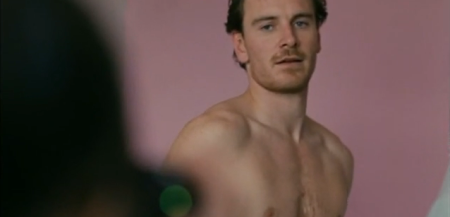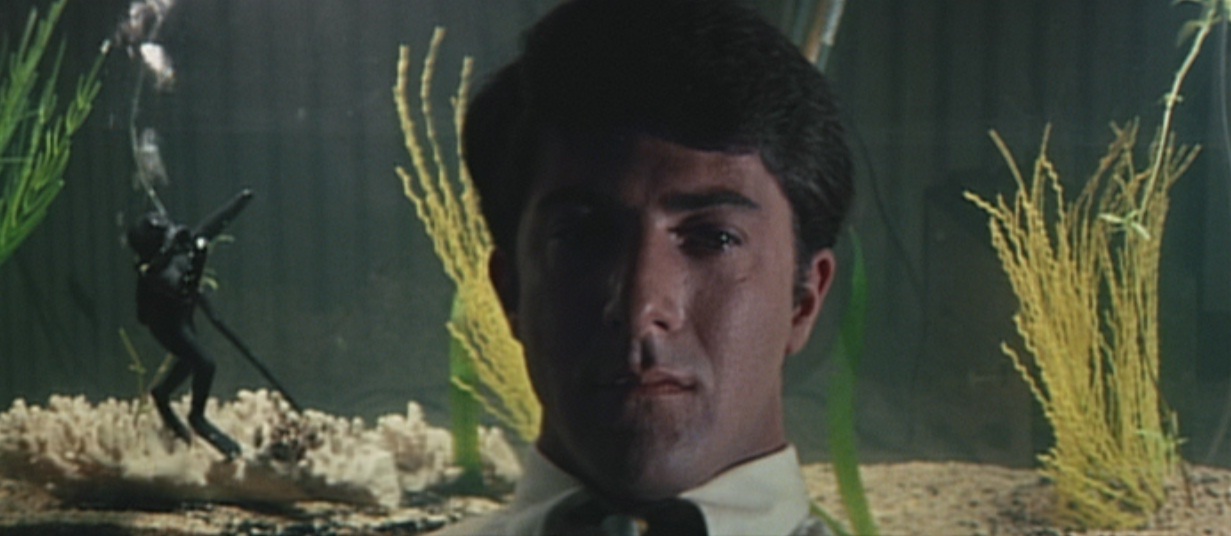Distant Relatives: The Graduate and Fish Tank
 Thursday, December 1, 2011 at 7:27PM
Thursday, December 1, 2011 at 7:27PM Robert here w/ Distant Relatives, exploring the connections between one classic and one contemporary film.
 Sedentary and Sex
Sedentary and Sex
So what do a rough and realistic look at poverty in London and a comedy set in the suburbs of California have in common? Well at first glance both are about the events that lead up to and follow an inappropriate relationship. For many reasons, the cinematic arts naturally drift toward stories of forbidden sex. They allow filmmakers to explore the human condition in areas that lend themselves to lack of control. They're filled with all kinds of drama and conflict. And of course sex gets people to sit and watch. But there's more to it. After all, with all of these films about forbidden sex out there, why these two that seem so different? In both The Graduate and Fish Tank, the inappropriate relationships aren't really the problem. Well, they are eventually, but initially they're just a symptom of something greater. Both films have protagonists filled with agitation, ennui, longing, and the desire to do something, anything greater than what they're doing now. And both films postulate that this puts them on the easiest possible path to seduction.
In 1967 The Graduate became a hit because as all we all know, it spoke to an entire generation. But it didn't speak to a generation because every young person in the 1960's was familiar with boinking their parent's friends. Ben Braddock, the titular character came back from school to a safe suburban existence where everyone had unique opinions on what he should be doing with his life. Yet all of these opinions came from people with lives to which he did not aspire. Benjamin's potential seemed endless yet all paths pointed to an undesirable future. Fish Tank's Mia (Katie Jarvis), although an ocean and a continent away and on the opposite spectrum of the class divide finds herself in a similar situation, however she doesn't have the benefit of unlimited prospects. At fifteen, Mia doesn't have much of a future at all. She doesn't like her mother and doesn't want to become her mother, but there doesn't seem to be too many other options. She's not one for academic pursuits and mostly dreams of being a dancer in a non-specific way.

No Someday. No Rainbow.
With Benjamin and Mia adrift, the idea of a promising future slipping further and further away, they turn their attention to the possibilities of the present. Enter someone older, desirable, representative of impulsiveness and rebellion. Both Benjamin and Mia have a need that requires filling. Love and affection? Maybe. But more so a desire to be distracted from their hopeless future, perhaps even a need to be destructive, to have some ownership over a future already in shambles by being careless and responsible for its destruction themselves.
Then there are the seducers. The Graduate's Mrs. Robinson (Anne Bancroft) is the epitome of aggressiveness. Fish Tank's Connor (Michael Fassbender) is more subtle. Then again he has to be. A movie about a fifteen year old girl being seduced by an older man has to be handled differently than a film about a male college graduate being seduced by an older woman. An aggressive Connor would have immediately upped the suspense and diminished the realism. But in both films, it doesn't take much for the deed to be done. Yet once Benjamin and Mia realize that their older suitors are still representatives of their ugly futures, they realize that they can't be a part of them. Ambiguous endings abound, though there is the sense that our protagonists have learned something. Been used to be sure, but reset onto a better path? Or do they, in the words of The Graduate director Mike Nichols "become their parents?"
If you still think the comparisons are a bit trying, consider the title of our modern film: Fish Tank. It suggest being both submerged and imprisoned at the same time. It's a clear effective metaphor, and one that The Graduate would know something about too.

Other Cinematic Relatives: Lolita (1962), Beau Pere (1981), Fat Girl (2001), Notes on a Scandal (2006)


